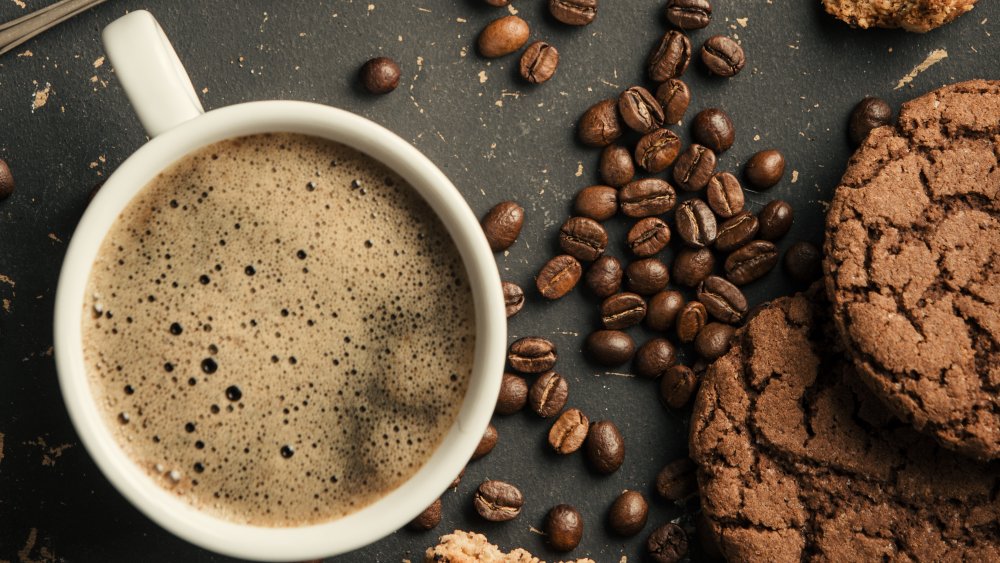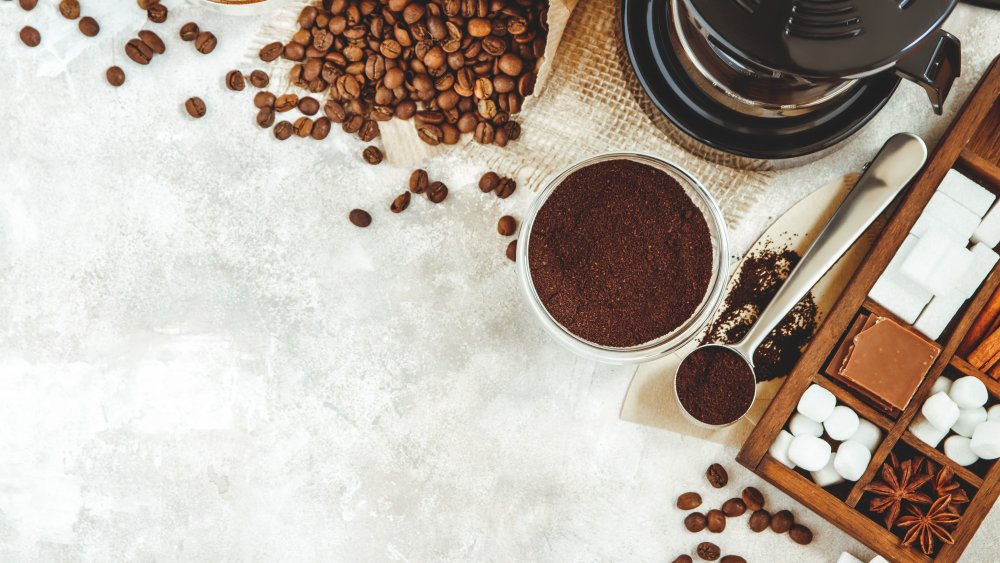Why You Should Think Twice About Ordering Dark Roast Coffee
It's a rough morning, and you need a stronger caffeine fix than usual. As you stand in line at your local, slightly-too-trendy cafe, you ponder the options. Skipping over the decadent latte flavors and suspiciously-pricey yogurt parfaits, you decide on a tall, hot cup of dark roast. After all, that's the strongest thing on the menu, is it not? Darker roast, more caffeine, you figure. Light roast just sounds like watered-down coffee — right?
Some industry experts say that dark roast is an all-out scheme to mask the flavor of low-quality coffee beans. "If you are roasting the coffee dark, it is usually because the coffee was not good to begin with; the origination of dark roasts was to cover defects in the green coffee," a representative from Bird Rock Coffee Roasters told Mashed. The rep even added that in the early years of specialty coffee, dark roast was often used to burn mold from poorly stored beans. Are you thinking about changing your order yet?
Lighten up a little
Now, you know, and hopefully can handle the truth about dark roast coffee. As we mentioned, dark roast does not mean you're getting more caffeine in your cup. In fact, if you head to Starbucks, you'll find more caffeine in its blonde roast than its dark roast — 360 versus 260 milligrams.
How the coffee is roasted will also bring out a different flavor in your coffee, and let's face it, we want to enjoy our first morning cup more than anything. And the taste matters — a light roast will produce some acidity, while the darkest roast on the menu will have a "smoky or even burnt taste," according to Pinebrook Coffee Roasters. While light roasts may not totally be your thing, you can always experiment with the medium roasts, which fall between the acidity of light roast and the sometimes-charred taste of dark roast.
It's also worth noting that a 2017 study in the Journal of Medicinal Food found a higher concentration of antioxidants in light roast than its medium and dark counterparts. Either way, if you find the strength to change your everyday, semi-religious coffee routine, we congratulate you.

